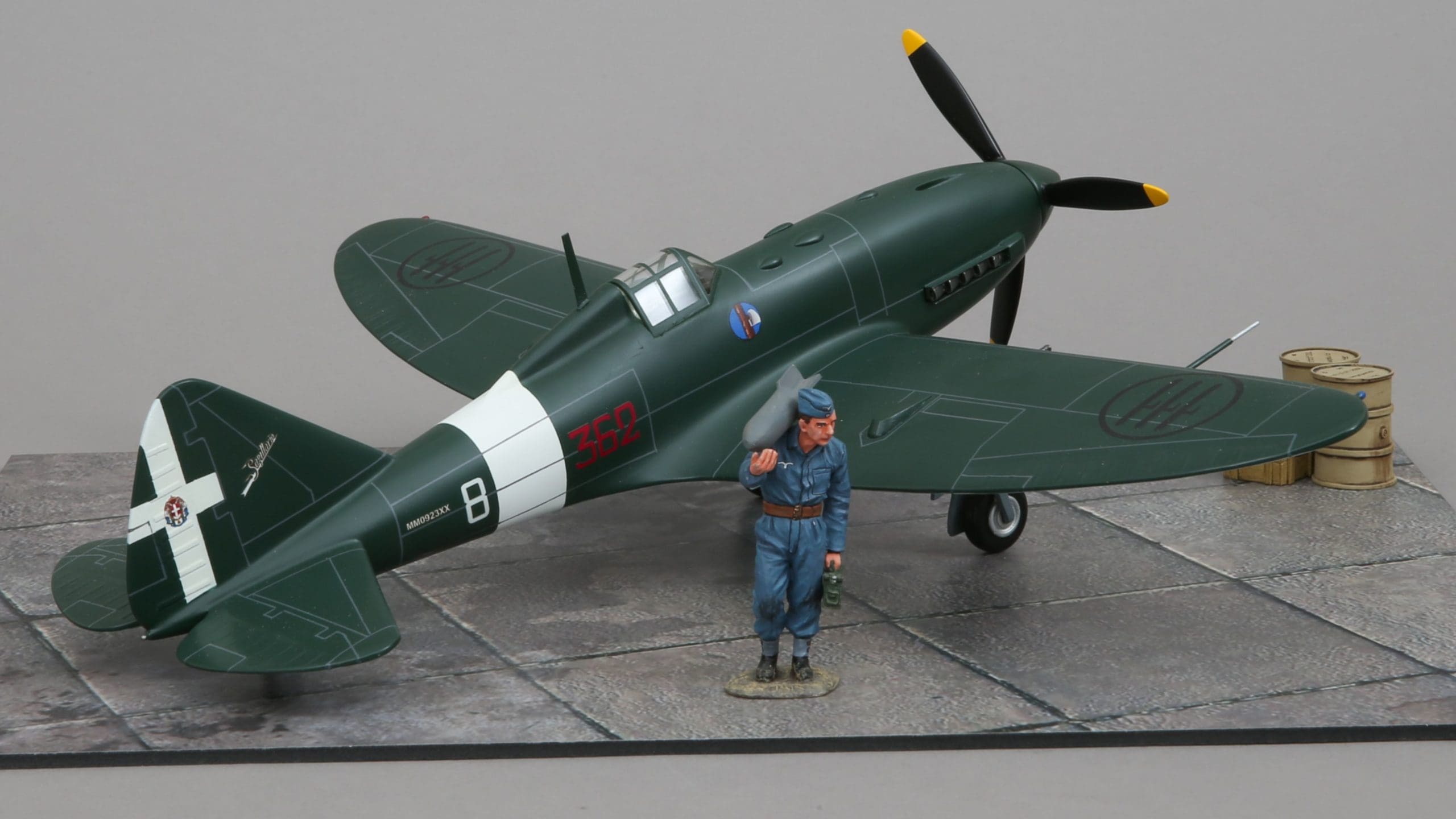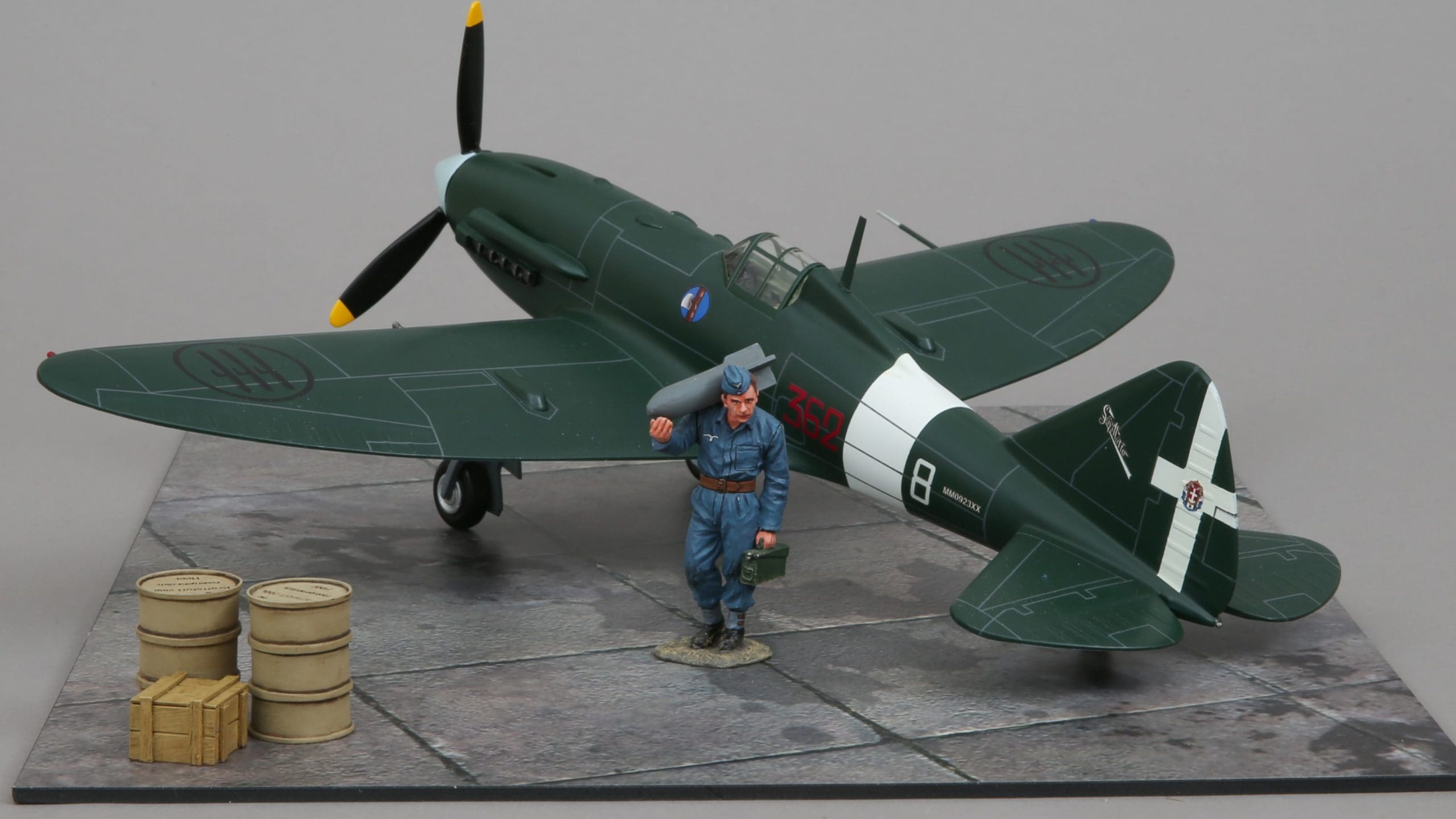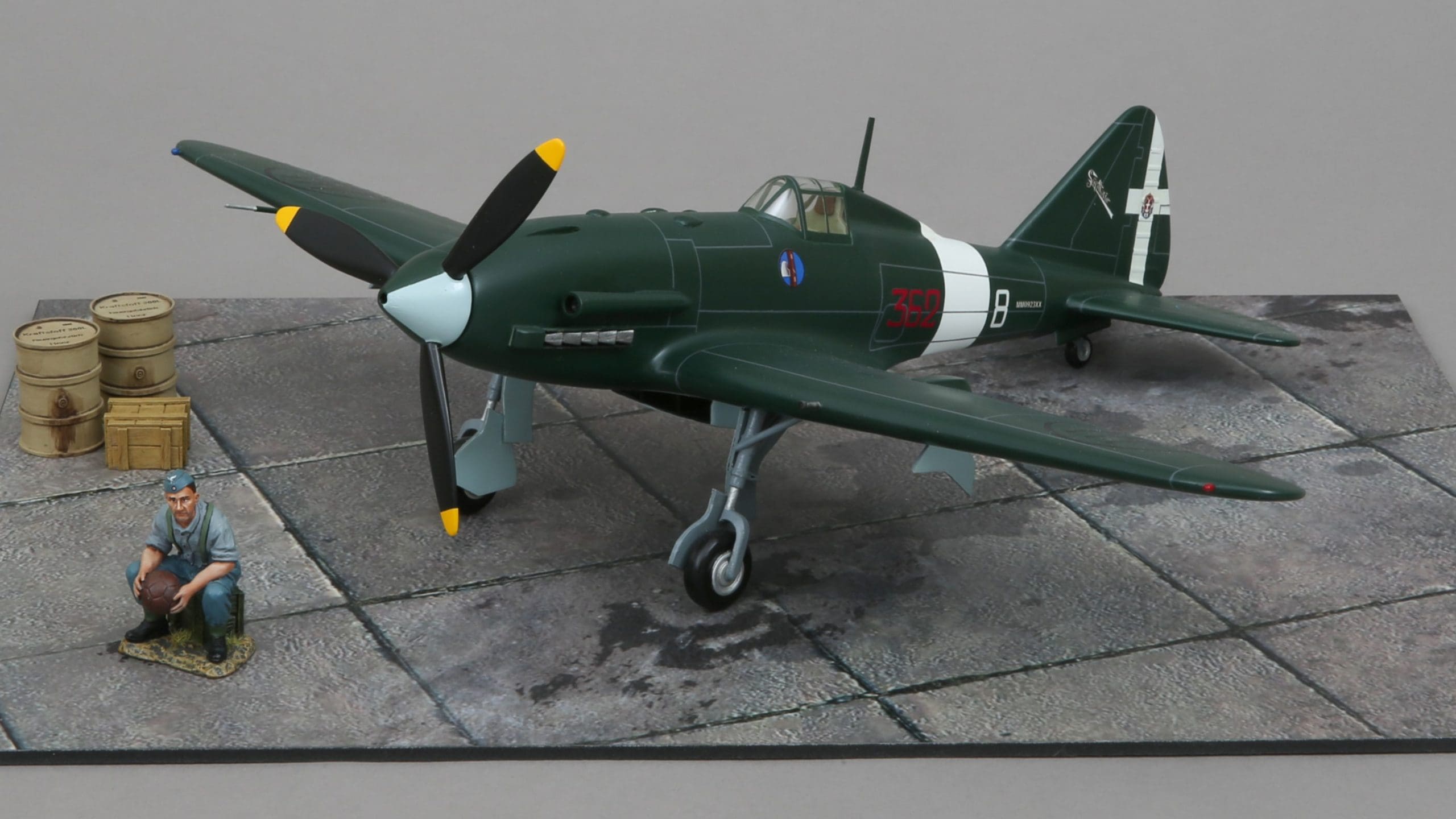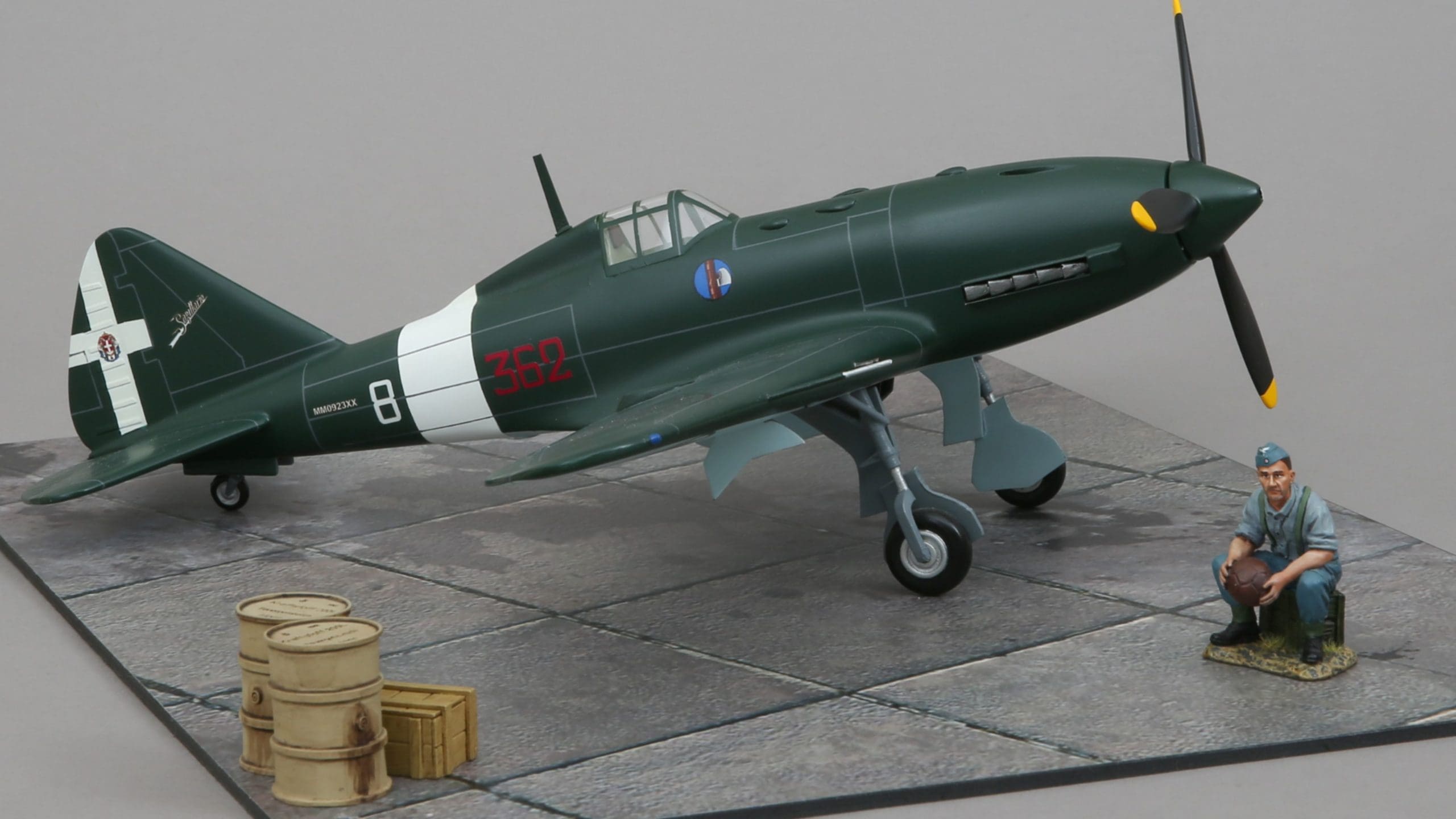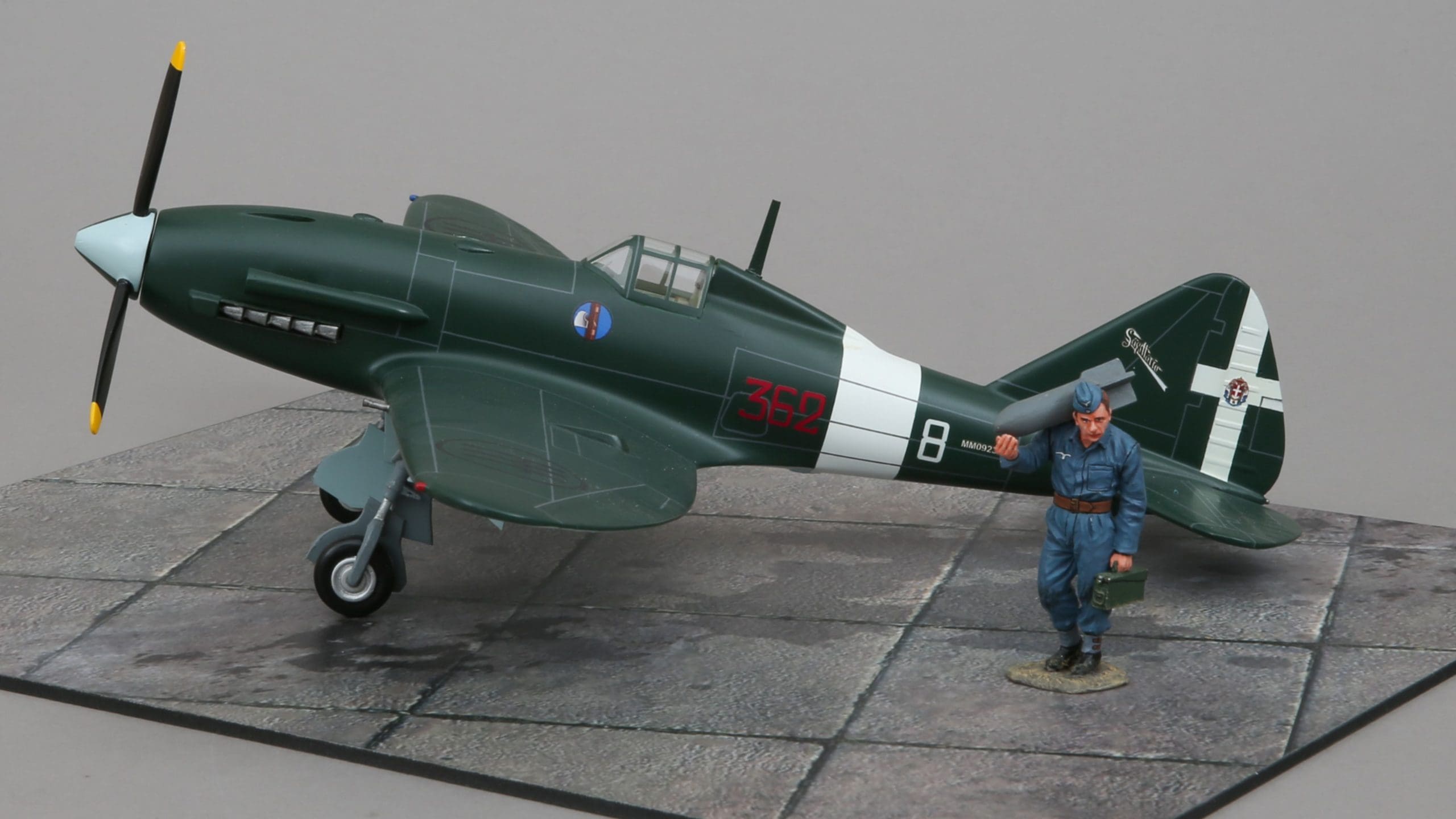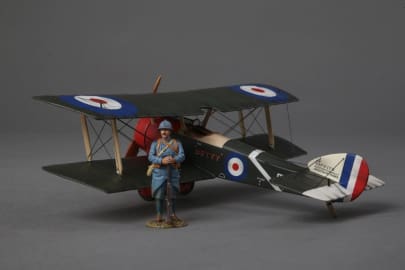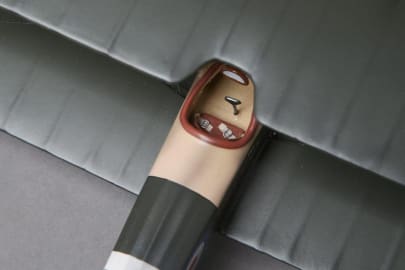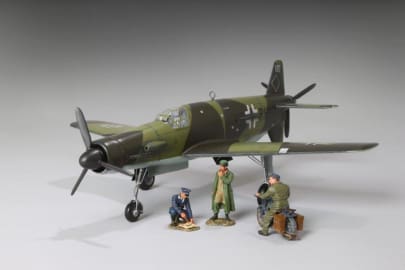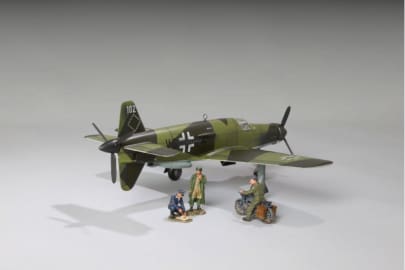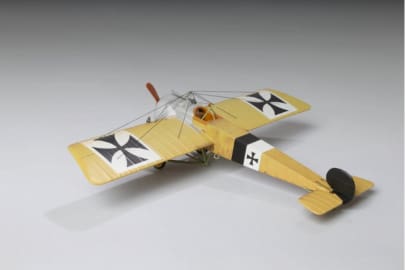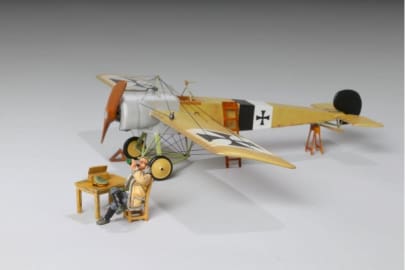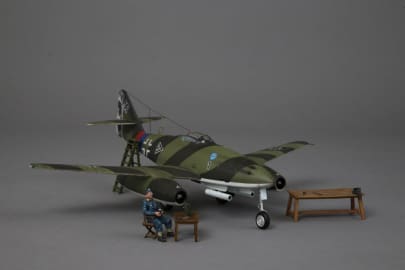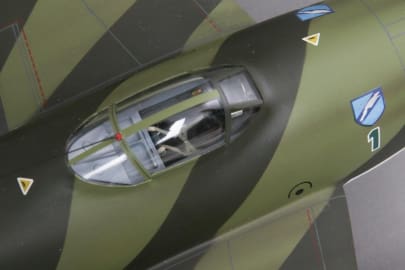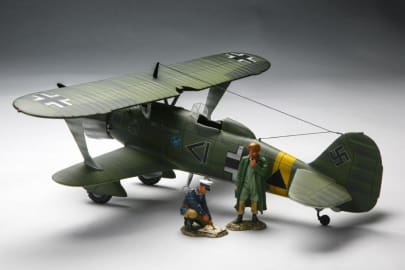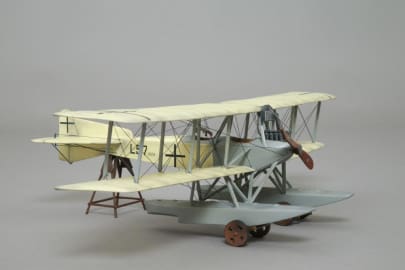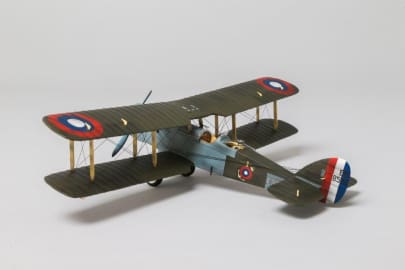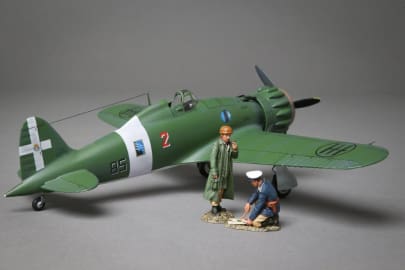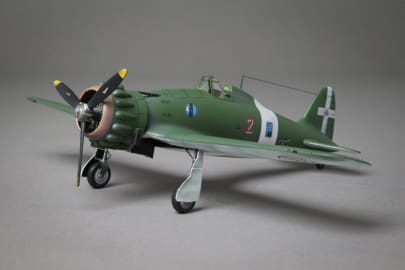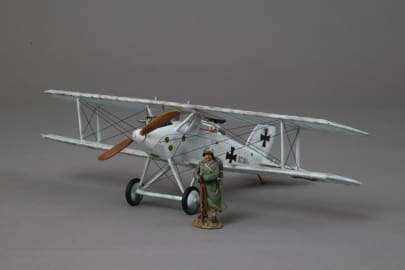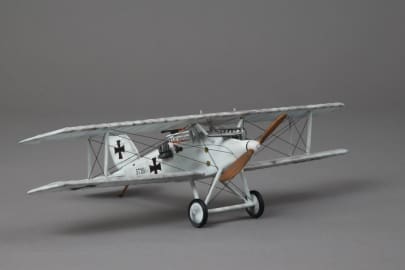- Free shipping available on orders over £100 (UK) £250 (EU) and $300 rest of the world
WOW459 Reggiane Re.2005 Sagittario
Out of Stock
Description
Description
The Reggiane Re.2005 Sagittario (Archer) was an Italian monoplane fighter/fighter-bomber produced for the Regia Aeronautica during the later years of World War II. Along with the Macchi C.202/C.205 and Fiat G.55, the Reggiane Re.2005 was one of the three Serie 5 Italian fighters. The lines of the fuselage were aerodynamically efficient, and the design was intended to exploit the famous Daimler-Benz DB 605 engine. The only drawback was a structural weakness in the rear section of the fuselage. The fighter took part in the defense of Naples, Rome, and Sicily, with the survivors battling above the crumbling ruins of Berlin, in German insignia.
British ace and military observer, Group Captain Duncan Smith, DSO DFC, said, “The Re.2005 was altogether a superb, potent airplane.”
The first pilot to use the Re. 2005 in action was Maggiore Vittorio Minguzzi, commander of the 22nd Gruppo. The unit was based at Napoli-Capodichino airfield for the defense of the city.
Minguzzi received the prototype of the Re.2005 (MM.494) after flight test evaluations in Guidonia and made the first flight with this aircraft on 7 March 1943.
He and the more capable pilots of the Gruppo flew this prototype until March 23 and all had a very favorable and enthusiastic impression of the aircraft.
He then was posted to Napoli-Capodichino where he joined the 362nd Squadriglia. This unit, commanded by Captain Germano La Ferla, was the first to be equipped with the Re.2005.
Minguzzi first used the Sagittario in combat on 24 March, when Naples was attacked and on 2 April claimed a four-engine B-24 Liberator bomber over the island of Ischia.
This claim is not verified against the applicable losses of USAAF. Italian ace Vittorio Minguzzi was impressed with this aircraft after its trials and combat debut on April 2, 1943. He wrote the following;
“The aircraft is in ideal flying condition at an altitude of 7000 to 7500 m (23,000 to 24,600 ft) and can perform repeated attacks on American heavy bombers in all positions and from all directions…
Therefore, I can say that the speed and handling qualities are excellent even at 7,000 m (23,000 ft) and that, compared to the Macchi 202, the Sagittario made two attacks in the time required by the Macchi C.202 for a single pass.”
This statement provides a realistic comparison between the two aircraft: at theoretical speed, the Macchi C.202 was only 30 km/h (19 mph) slower,
but the Re.2005 with the DB-605 engine and a larger wing provided a substantial improvement in high-altitude performance (the difference was less marked at medium to low altitudes, as the comparison with the C.205V showed).
During April, the 362nd Squadriglia received three more Re.2005 of the 0 series, but the number of Re.2005 in the 22nd Gruppo never exceeded eight.
The first confirmed aerial victories came on 28 April, when four Re.2005s of the 22nd Gruppo set out (with a C.202 and a Dewoitine D.520) from Capodichino to intercept a formation of 30 B-24 Liberators, escorted by 30 fighters heading for Naples. The Re.2005 were flown by Maggiore Minguzzi, Capitano La Ferla, Lieutenant Giulio Torresi and Sergente Donati.
The 22nd Gruppo claimed one B-24 (from Minguzzi) and four probable ones (one was later confirmed by an observer on the ground and credited to Donati). Ten more were claimed as damages shared by the entire Group.
More aircraft arrived at 362nd Squadriglia and in the following weeks, this unit showed much more power than the C.202 units, claiming several bombers for the loss of a pair of Re.2005s.
By 25 June 1943, the pilots of Reggiane Re.2005 claimed a total of seven B-24s and many others damaged, but the claimed losses rarely matched the actual losses.
On 2 July 1943, the 362nd was sent to Sicily to deal with the impending invasion and engaged in combat with Spitfires, claiming five shot down from 11–14 July (two were confirmed kills: one reconnaissance Spitfire and one shot down in a strafing attack on Comiso).
A number of other fighters joined the 362A, but when one was damaged in a heavy fall on 21 August 1943, some concerns then arose. On 25 August, MM.092356 (Lieutenant Dario Signorini’s) was lost during another dive and therefore further flights were suspended.
It was found that at speeds above 660 km/h (410 mph) TAS, each maneuver could adversely affect flight control in the tail and then cause damage to the fuselage by flapping .
Re.2005 pilots were prohibited from reaching very high speeds (VNE 800 km/h (500 mph)), but by then, operations were declining as the Armistice went into effect. In July 1943, the Cmdr. of Prato reached a speed of 980 km/h (610 mph) in a dive without loss of control and without flapping end.
The licence produced 1050 Tifone, DB 605 engines were limited to 2650 rpm instead of the usual 2800 rpm with a corresponding drop in power from 1100 to 1007 kW (1475 to 1350 hp). The MM.494 prototype equipped with a DB 605 had a recorded speed of 678 km/h (421 mph) when flying fully equipped, but this speed was achieved by levelling the aircraft after a dive.
The official top speed was 628.5 km/h (390.5 mph) at an altitude of 6,950 m (22,800 ft). The Re.2005 had good handling in combat and, according to General Minguzzi, who flew both the Re.2005 and the Spitfire, the Re. 2005 was even better than the Spitfire in tight corners and handling.
Our 1/30 scale Reggiane is one flown in the defence of Rome and is limited to 5 in number worldwide, priced at $695 plus postage.
The K&C/TG figures and accessories are shown for scale comparison purposes only and are not included.

